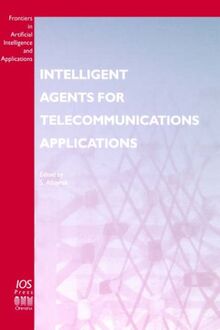
Intelligent agent and distributed AI (DAI) approaches attach specific conditions to cooperative exchanges between intelligent systems, that go far beyond simple functional interoperability. Ideally, systems that pursue local or global goals, coordinate their actions, share knowledge, and resolve conflicts during their interactions within groups of similar or dissimilar agents can be viewed as cooperative coarse-grained systems. The infrastructure of telecommunications is a world in transition. There are a number of trends that contribute to this: convergence of traditional telephony and data network worlds, blurring of boundaries between public and private networks, complementary evolution of wireline, wireless, and cable network infrastructures, the emergence of integrated broadband multimedia networks and, of course, the information superhighway. Up to now, despite the effort that has gone into this area, the field of intelligent agents research has not yet led to many fielded systems. Telecommunications applications pose strong requirements to agents such as: reliability, real-time performance, openness, security management and other integrated management, and mobility. In order to fulfil their promise, intelligent agents need to be fully dependable and typically require an integrated set of capabilities. This is the challenge that exists for intelligent agents technology in this application domain.